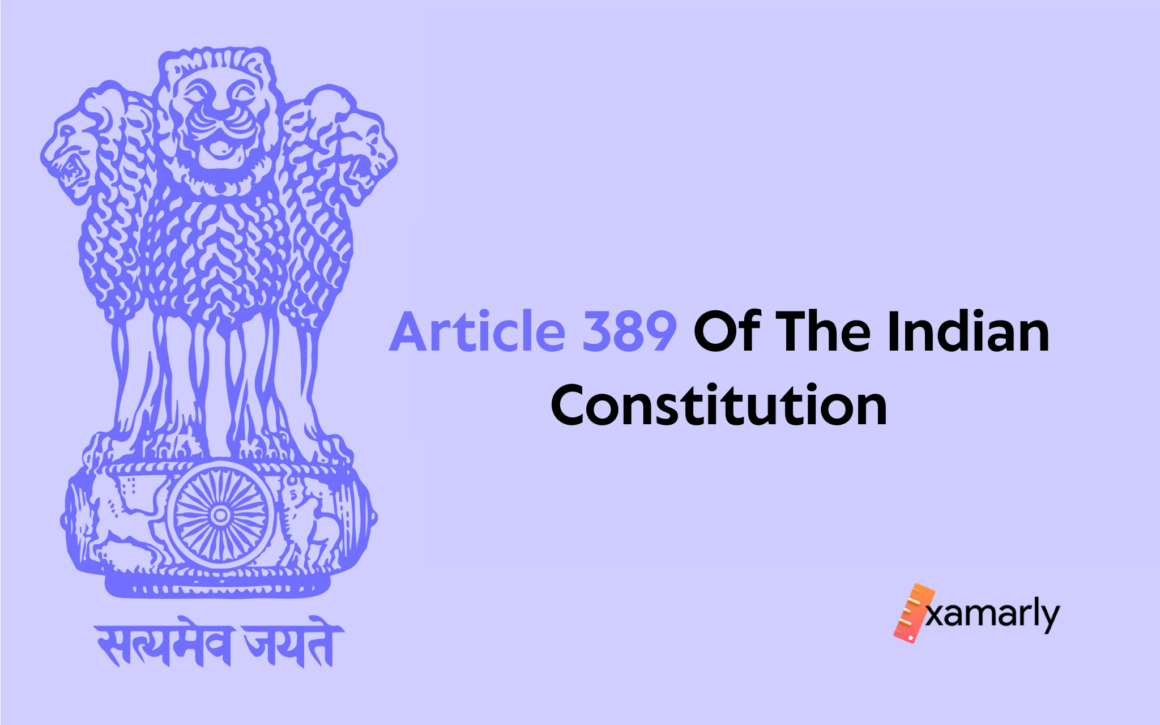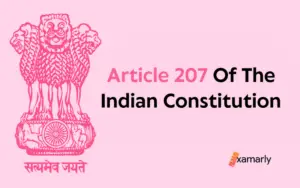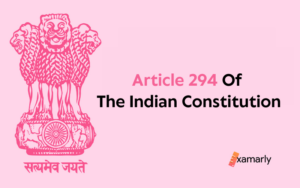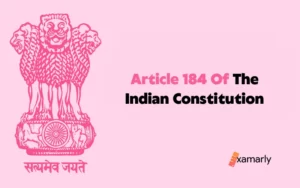Article 389 of the Indian Constitution provided the regulation for a bill pending in the Indian Parliament or any State Legislature before the commencement of the Indian Constitution.
Read along to have a better understanding of Article 389 of the Indian Constitution, the debates around it & its omission from the Indian Constitution.
What Did Article 389 Of The Indian Constitution Say?
Article 389 Of The Indian Constitution stated that the bill may,
- subject to provisions contrary to the rules made by the Indian Parliament or the State Legislature under the Indian Constitution,
be continued in the Indian Parliament or the corresponding Legislature, as the case may be,
- as if the proceedings with reference to the Bill in the Legislature of the then Dominion of India or in the Legislature of the Province or Indian State, had been taken in the Indian Parliament or in the concerned Legislature.
Debate Around Article 389 Of The Indian Constitution
In the year 1956, during the proceedings of Raja Bhairebendra Narayan Bhup Vs. The State of Assam, the Supreme Court of India noted that if a Bill was pending in the Legislature of Assam immediately before the commencement of the Indian Constitution in effect, then clearly it was to be properly continued in the Legislature of the corresponding Indian State.
Gradually, two questions would arise in such a case:
- Whether at the commencement of the Indian Constitution, the Bill was pending at all.
- And if it was, whether it was pending in the Legislature of Assam.
Along with Article 389 of the Indian Constitution, the following sections under the Government of India Act, 1935 laid down similar provisions:
- Section 30 provisioning for the introduction of Bills in the Chambers of the then Indian Federal Legislature, or the Indian Parliament today.
- Section 73 providing for the introduction of Bills in the Chamber or Indian Chambers of the Provincial Legislature.
- Section 32 that laid down provisions for presentation of the Bill passed by the Indian Federal Legislative Chambers to the Governor-General.
- Section 75 for the presentation of the Bill passed by the Indian Provincial Legislative Chamber or Chambers to the Governor.
Omission Of Article 389 Of The Indian Constitution
Article 389 of the Indian Constitution was omitted by the Indian Constitutional (Seventh Amendment) Act, 1956, with effect from 1-11-1956, after the aforementioned hearing of the Supreme Court of India because of the following reasons:
- It was a temporary provision that was included in the original Indian Constitution and was meant to be in effect for a period of ten years from the commencement of the Indian Constitution.
- It stated that, for a period of ten years from the commencement of the Indian Constitution, any law that was in force in a state immediately before the commencement of the Indian Constitution and that was repugnant to any of the provisions of the Indian Constitution would continue to be in force in the Indian subcontinent, until amended or repealed by either the Indian Parliament or the concerned State Legislature.
The Indian Constitution (Seventh Amendment) Act 1956, provisioned for the implementation of the scheme of Indian States’ reorganisation by means of amendments to the Indian Constitution.
Summary
Article 389 of the Indian Constitution was a provision included in the Indian Constitution to give the Indian States a ten-year period time to bring their laws into conformity with the Indian Constitution and to ensure that the Indian administration of justice was not disrupted during the transition to a new constitutional order.
After the ten-year period expired, Article 389 of the Indian Constitution ceased to have any effect and was subsequently omitted from the Indian Constitution.
You Might Also Like To Read: Article 388 Of The Indian Constitution.
FAQs Related To Article 389 Of The Indian Constitution
What did Article 389 of the Indian Constitution say?
Article 389 of the Indian Constitution mentioned about the proceeding of a bill pending in the Indian Parliament or any State Legislature before the commencement of the Indian Constitution. It said despite of the contradictory provisions, the bill shall be proceeded in the Indian Parliament or the concerned State Legislature.
Why was Article 389 of the Indian Constitution omitted?
Article 389 of the Indian Constitution was omitted from the Indian Constitution as it was meant to be in effect for a period of ten years from the commencement of the Indian Constitution.
The Supreme Court of India found some flaws in the debate of Raja Bhairebendra Narayan Bhup Vs. The State of Assam & hence dismissed it from the Indian Constitution.
What was the main objective of Article 389 of the Indian Constitution?
The main objective of Article 389 of the Indian Constitution was to bring the Indian State Laws in conformity to the Indian Constitution within a ten-year period of commencement of the Indian Constitution.
It also aimed at improving the administration of justice in the Indian subcontinent.






